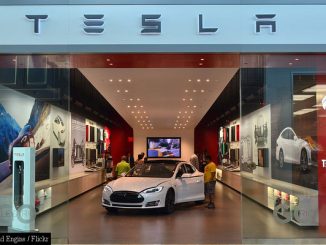Karl Brauer, Executive Analyst at iSeeCars.com, recently discussed the ambitious sales growth targets set by Tesla CEO Elon Musk, expressing skepticism about the feasibility of achieving a 20% to 30% increase in vehicle sales for 2025. During a CNBC interview, Brauer highlighted several key issues that could hinder Tesla’s plans.
Musk has been vocal about introducing a lower-priced car to expand Tesla’s market reach, a strategy Brauer believes is long overdue but still not imminent enough to drive the projected growth. He pointed out that the production timeline for an entirely new model inherently requires more time than Musk’s aggressive targets allow for, suggesting that such growth within a year is unrealistic based on manufacturing lead times alone.
Addressing the Cybertruck, Brauer noted that while it was introduced with high expectations, its high cost and limitations as a practical pickup truck do not position it as a sales volume driver. He explained that electric pickups like the Cybertruck suffer from reduced range when towing or hauling, a significant drawback compared to traditional gas or diesel trucks which can be refueled quickly. This diminishes the Cybertruck’s appeal to the core pickup truck market, which values utility and efficiency.
On the topic of affordability, Brauer acknowledged the need for Tesla (TSLA) to offer a vehicle that can compete on price with the increasingly capable and affordable electric vehicles from Chinese manufacturers like BYD. However, he doubts that even a new, lower-priced Tesla model could match the profit margins of these competitors, given their established advantage in producing cost-effective EVs.
The conversation also turned to the competitive landscape in China, where domestic manufacturers are not only growing but doing so at the expense of foreign brands. In fact, Chinese automakers like Zeekr are scaling deliveries significantly, aiming to increase from 220,000 to 320,000 cars this year. Brauer suggested that this growth will likely continue, fueled by domestic price wars that are squeezing out international players like Volkswagen, Ford (F), and General Motors (GM).
Brauer concluded by predicting that the competitive dynamics within China’s EV market will become increasingly cutthroat, with domestic brands battling each other for dominance while continuing to erode the market share of foreign manufacturers. This scenario paints a challenging picture for Tesla, which must navigate both domestic and international markets under these pressures to meet Musk’s ambitious growth forecasts.
- Bulenox: Get 45% to 91% OFF ... Use Discount Code: UNO
- Risk Our Money Not Yours | Get 50% to 90% OFF ... Use Discount Code: MMBVBKSM
Disclaimer: This page contains affiliate links. If you choose to make a purchase after clicking a link, we may receive a commission at no additional cost to you. Thank you for your support!




Leave a Reply